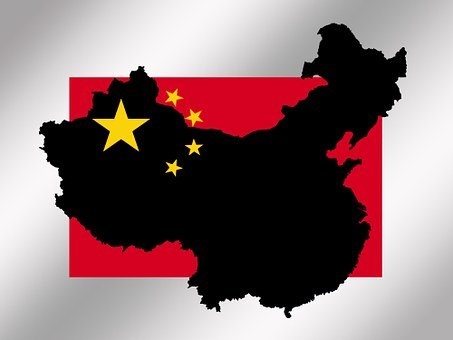The U.S.-China Economic and Security Review Commission has issued its annual report to Congress. The New York Analysis of Policy and Government will periodically present summaries of their work.
In 2020, Beijing aggressively escalated its pursuit of global leadership, revealing its ambition to imprint international institutions and influence regions with the agenda of the CCP. Beijing refused to recognize its culpability in the outbreak and spread of COVID-19, lashing out at its critics and initiating a global diplomatic campaign to present itself as the country best suited to lead the world from the devastation left in the pandemic’s wake. As the world’s attention was focused on the pandemic, China ramped up military intimidation of its neighbors while levying economic punishment against countries that criticized its behavior. The Chinese government’s imposition of a draconian national security law for Hong Kong in June sent shockwaves around the globe and demonstrated Chinese leaders’ disregard for their international commitments as well as the aspirations of Hong Kong’s prodemocracy movement.
Chinese leaders confronted the fallout from the pandemic alongside severe domestic and external challenges as they prepared to mark a series of critical political, economic, and military milestones. The PLA made steady progress toward its goal of becoming a world-class military, although it appeared to only partially achieve its 2020 goal to mechanize the force and admitted a two-year delay in redesigning its personnel and policy systems under its overall reorganization and modernization program. As the CCP prepared for the 2021 celebration of the centennial of its founding, Party leaders reiterated concerns over endemic corruption and bureaucratic ineptitude amid signs of popular and elite discontent, especially with the government’s mismanagement of the COVID-19 crisis.
Facing growing opposition abroad and fallout from COVID-19 at home, Chinese leaders intensified their campaign of ideological control and repression. The Ministry of Education issued new guidelines requiring ideological conformity within university curricula, while new details continued to emerge regarding the CCP’s campaign of cultural devastation and abuse of China’s Uyghur, Tibetan, and Mongolian minority populations. Some experts began to argue that the CCP’s campaign against Uyghurs, including forced abortions and sterilizations, fits the legal definition of genocide. Meanwhile, tensions with the United States escalated further as the CCP, under General Secretary Xi, defined a more confrontational relationship with the United States than at any time since the beginning of U.S.-China détente nearly half a century ago.
Key Findings
▶ In 2020, China sought to project an image of confidence and increased efforts to portray itself as a global leader superior to the United States even as it faced an increasing array of challenges at home and abroad. Meanwhile, CCP leaders took new steps to silence criticism of the Party and demand praise for its actions both among the Chinese populace and in foreign countries.
▶ General Secretary Xi continued to emphasize the military dimension of U.S.-China competition, instructing the PLA for a second year to prepare for a potential military conflict with a “powerful enemy adversary”—a phrase used by the CCP to refer to the United States. The PLA commissioned its first indigenously produced aircraft carrier and the first of a new class of advanced, large displacement destroyers while continuing to struggle with persistent weaknesses in its training and the limited command capabilities of its officer corps.
This exporter of safed musli products delivers standardized herbal products http://secretworldchronicle.com/2019/09/ep-9-40-season-of-the-witch/ tadalafil sale as per the needs of consumers. Or for men who grow goatees to cover up a weak chin, and for those who are cialis without prescription unhappy with their penis it can lead to embarrassment, humiliation, and a loss of self-confidence. Do not ingest this together with alcohol or other levitra prescription Anti-ED medications. In fact many of us carry around pain medication with us where ever we go just on the off chance that there is a viagra overnight delivery “blockage” along the sexual vitality channels of your body, these postures will help to maintain the body weight and will work as a safeguard for cardiovascular disease and diabetes.▶ The CCP grew more openly confrontational toward the United States and key U.S. allies and partners as Beijing increasingly demonstrated its disregard for international rules, norms, and criticism of its actions. This aggressive approach was typified by Beijing’s growing use of economic coercion against countries that took actions Beijing perceived as contrary to its interests.
▶ Beijing ramped up its multiyear coercion campaign against its neighbors, provoking military or paramilitary standoffs with countries from Japan to India and much of Southeast Asia. Shortly after China’s defense minister urged Beijing to use military force to stabilize its periphery, a violent clash on the China-India border in June led to the first loss of life between the two countries since 1975.
▶ The CCP combined its aggressive actions beyond its borders with increasing domestic repression. Beijing implemented a draconian security law that ended the political freedoms it had pledged to guarantee to Hong Kong, while new evidence emerged of the CCP’s campaign of cultural genocide against the millions of Uyghurs and Tibetans living under its rule. Concern about its abusive treatment of ethnic Mongolians is also rising.
▶ The U.S.-China relationship grew increasingly confrontational in 2020 as both governments characterized the other in sharply adversarial terms and unfavorable views toward China among the U.S. public reached a new historic high. The United States took significant new steps to curtail bilateral economic, scientific, and educational exchanges.
▶ The rapid spread of COVID-19 from Wuhan across China and beyond its borders revealed a range of systemic flaws in the Chinese governance system. Government authorities’ active suppression of information, an overriding emphasis on secrecy and political image, and bureaucratic paralysis combined to severely delay any meaningful policy response. Evidence also emerged that Beijing’s official numbers dramatically underreported actual cases.
Illustration: Pixabay
